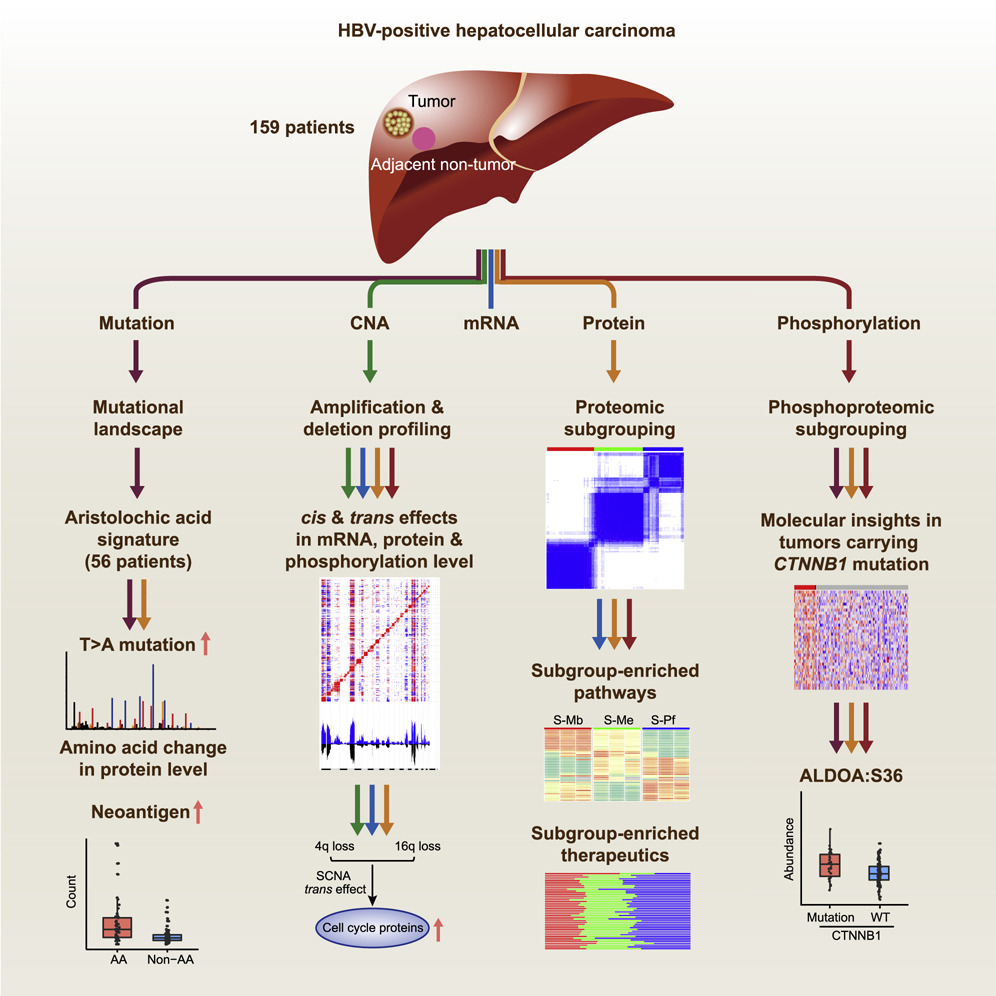Jurisdiction:
China
Organ System:
Liver
Funding Organizations:
- Chinese Academy of Sciences
- Ministry of Science and Technology of China
- National Natural Science Foundation of China
- Technology Commission of Shanghai Municipality
- National Science and Technology Major Project, China
Research Organizations:
- Shanghai Institute of Materia Medica, China
- Chinese Academy of Sciences, China
- Fudan University, China
- University of Chinese Academy of Sciences, China
Principal Investigators
:- Jia Fan
- Hu Zhou
- Daming Gao
Publication:
External Link:
The first proteogenomic characterization of hepatitis B virus (HBV)-related hepatocellular carcinoma (HCC) using paired tumor and adjacent liver tissues from 159 patients was performed. Integrated proteogenomic analyses revealed consistency and discordance among multi-omics, activation status of key signaling pathways, and liver-specific metabolic reprogramming in HBV-related HCC. Proteomic profiling identified three subgroups associated with clinical and molecular attributes including patient survival, tumor thrombus, genetic profile, and the liver-specific proteome. These proteomic subgroups have distinct features in metabolic reprogramming, microenvironment dysregulation, cell proliferation, and potential therapeutics. Two prognostic biomarkers, PYCR2 and ADH1A, related to proteomic subgrouping and involved in HCC metabolic reprogramming, were identified. CTNNB1 and TP53 mutation-associated signaling and metabolic profiles were revealed, among which mutated CTNNB1-associated ALDOA phosphorylation was validated to promote glycolysis and cell proliferation. Our study provides a valuable resource that significantly expands the knowledge of HBV-related HCC and may eventually benefit clinical practice.

